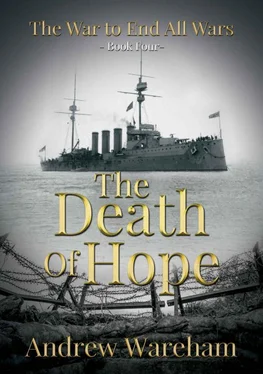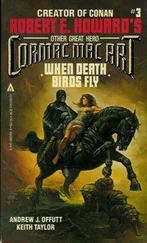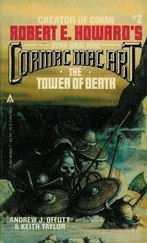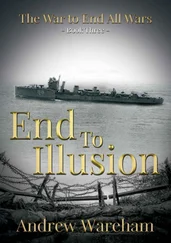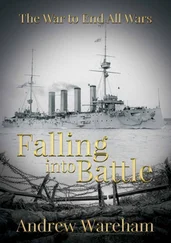“The only aeroplanes I have seen were lower than that, Captain Campbell-Barnes. Far lower.”
“I know, sir. I am not entirely certain it is an excellent gun. Add to that, it is difficult to allow for pitch and roll, which can be extreme on a small ship, as you know, sir.”
“Make me a report, please. I will submit it as a matter of urgency. The Admiralty will be unwilling to take you back into the yard to replace a gun you have only just had fitted. A failed experiment will be the best approach. Has your Gunner been able to lay his hands on anything useful?”
“Probably, sir. I take pains not to enquire too closely.”
“Me too. My own man has been able to pick some useful stuff.”
“Hence the seaplane that was shot down, sir. By fire coming from your waist, not from the bridge Lewis Guns!”
“Lewises are all very well, but they are short range weapons. My man was able to pick up something with a higher muzzle velocity. I asked for an issue, but they are being kept back for use in some sort of new armoured car that is being made. A special job, very secret.”
“Ah! That will be the ‘tanks’, sir. My father heard of the project – it’s using up almost all of the armour plate being manufactured in the country just now. Damned nuisance! Some sort of landship, so he was told. Don’t make a lot of sense to me. Might be the thing to bash through the trenches. Something needs to be!”
More than that, they did not know. There was a new weapon coming, of some sort.
The storm let up for a day, long enough for them to be well out to sea and was followed by another, heavier gale, out of the southwest and determined to drive the small ships ashore on the Dutch coast.
Simon signalled for the half-flotilla to make for Harwich, independently. He did not like the thought of trying to enter the open harbour at Dunkerque with a gale beating in from astern. He stood on the bridge, Mudgely and McCracken next to him, while the coxswain remained at the wheel, keeping Lancelot head on to the storm for hour after hour. The bows were submerged more often than not, white water beating against the bridge. The ship rolled incessantly. Every man aboard tied himself to a stanchion, where his work permitted, or gripped hard on the nearest solid rail while working with the other hand. Engineer Lieutenant Malcolm stayed on watch, thankful that Lancelot was oil not coal, adjusting revolutions every minute as the orders were called, trying to maintain a little more than steerage way, to crawl towards Harwich and waiting all the while for a rogue pitch that might heave the propellers out of the water to race in thin air, possibly to break from their shafts. A stoker knelt by each propeller clutch, doing nothing other than wait for the order to disengage the shaft, almost motionless, hour after hour, bumped and battered as the ship rolled, knowing that he must be able to act in the second the order was shouted to him.
There was three feet of water in the messdecks, waves travelling end to end with the pitch. The men below sat up on bunks and tables above the water, as much as they could be. There was nowhere else for them to go on the small ship. Inevitably, some swallowed splashes of salt water, others became seasick. A very few hours saw a flotsam of vomit on top of the flood. A few more hours and they discovered that the heads were unavailable – they could hardly reach them and were unable to flush them over the side. More solids accrued in the water.
The compartment stank.
Fourteen hours and Lancelot reached calmer seas, closer inshore, was able to increase speed. Six hours more and she fought her way to a buoy at Harwich, using the wireless to announce her presence. The seas were too rough to put off a boat and she waited in isolation for another full day.
“Clean ship, Number One.”
Strachan, who had spent the storm in the wardroom with Waller, unable to reach the bridge, saluted and acknowledged the order. The three from the bridge sat down wearily, took a hot drink, sought a bunk.
Lightning, Lynx and Lucifer steamed in over the day, all more or less storm damaged. All three had lost their mast and the radio aerial attached.
Simon surfaced after six hours of sleep – he was still tired but was incapable of sleeping more than a few hours at a stretch, watchkeeping habits totally ingrained.
He found the coxswain on deck, supervising the clean up and watching hands painting on the forward deck.
“Down to bare metal at the bows, sir. Like sandpaper, the waves were.”
“Have you cleaned out the forecastle?”
Simon had not been to the messdecks, knew what he would see there.
“Scuttles open, sir. Hosed out the lot. Never get the bunks and hammocks dry, sir. Lost some blankets overboard, sir. Put in a requisition to Stores, sir.”
Stores would refuse the order on the grounds that Lancelot had had a full issue less than two years previously. To get anything, he would have to go to Tyrwhitt.
“Commodore’s barge, sir.”
The coxswain organised the reception and sent word to the wardroom. All officers were on deck, fully dressed, before Tyrwhitt came alongside.
“Carry on, Sturton. Must be busy. Bad storm!”
“Severe gale, sir, and found us closer than I liked to the Dutch coast. Managed to claw off without entering their waters.”
“That’s the important thing, Sturton! How does it come about that you alone retained your mast?”
Simon pointed.
“Extra preventer stays, sir. Mr Mainwaring shipped them in readiness for the winter storms.”
“Well done, that man!”
“I haven’t had a full set of reports yet, sir. Lucifer lost one man, a gunlayer who was swept overboard trying to secure the ready use to their new three inch. The gun itself seems to have taken damage, or the bandstand it’s set upon has. Bloody stupid thing to set aboard a destroyer, sir. Impossible to aim off a rolling, pitching platform and how often is a destroyer stable?”
“Good question, Sturton. Three ships to the yard. Lynx and Lightning can go in to mine; Lucifer must return to Chatham. How do you stand?”
“Lost blankets overboard, sir, and a number of hammocks used to protect the forward four inch, sir. Most of them will never be usable again.”
“Put in your requisitions, I will speak to Stores.”
It was clear from Tyrwhitt’s tone that he did not believe Simon. He would support his own man, however.
“Five days, Sturton. I need you back out on station. What’s your opinion?”
“Light cruisers, sir. The new ships are as fast, almost, as a destroyer and better seaboats. Bigger targets for a torpedo, I will accept. Far better suited to North Sea waters in winter.”
“I agree. Haven’t got them, can’t do it.”
“Trawlers, perhaps, sir? A flotilla of six to support each other. Designed for rough weather. Slow. Should be able to catch a submarine.”
“They would be ripped to pieces by the big new German destroyers. Those things are damned near the size of a light cruiser!”
“Accepted, sir. Small ships can’t work out of the harbour at Dunkerque, sir. Whatever you decide to use, they will have to be based on Harwich. I must imagine the Dover Patrol had difficulties these last few days.”
“Shocking bad harbour to work from with a gale up-Channel. Word is that they were scattered over half of the southern North Sea. Harwich has its advantages!”
One of those advantages was that Ipswich was less than an hour distant. Simon was able to achieve a day away from the ship.
The battle of Loos petered out, drifting into desultory exchanges of machine gun fire and brief artillery hates, killing a few men occasionally, achieving nothing.
The war was far hotter to the rear where the generals and the staff and London sought to pass the blame to each other.
Читать дальше
